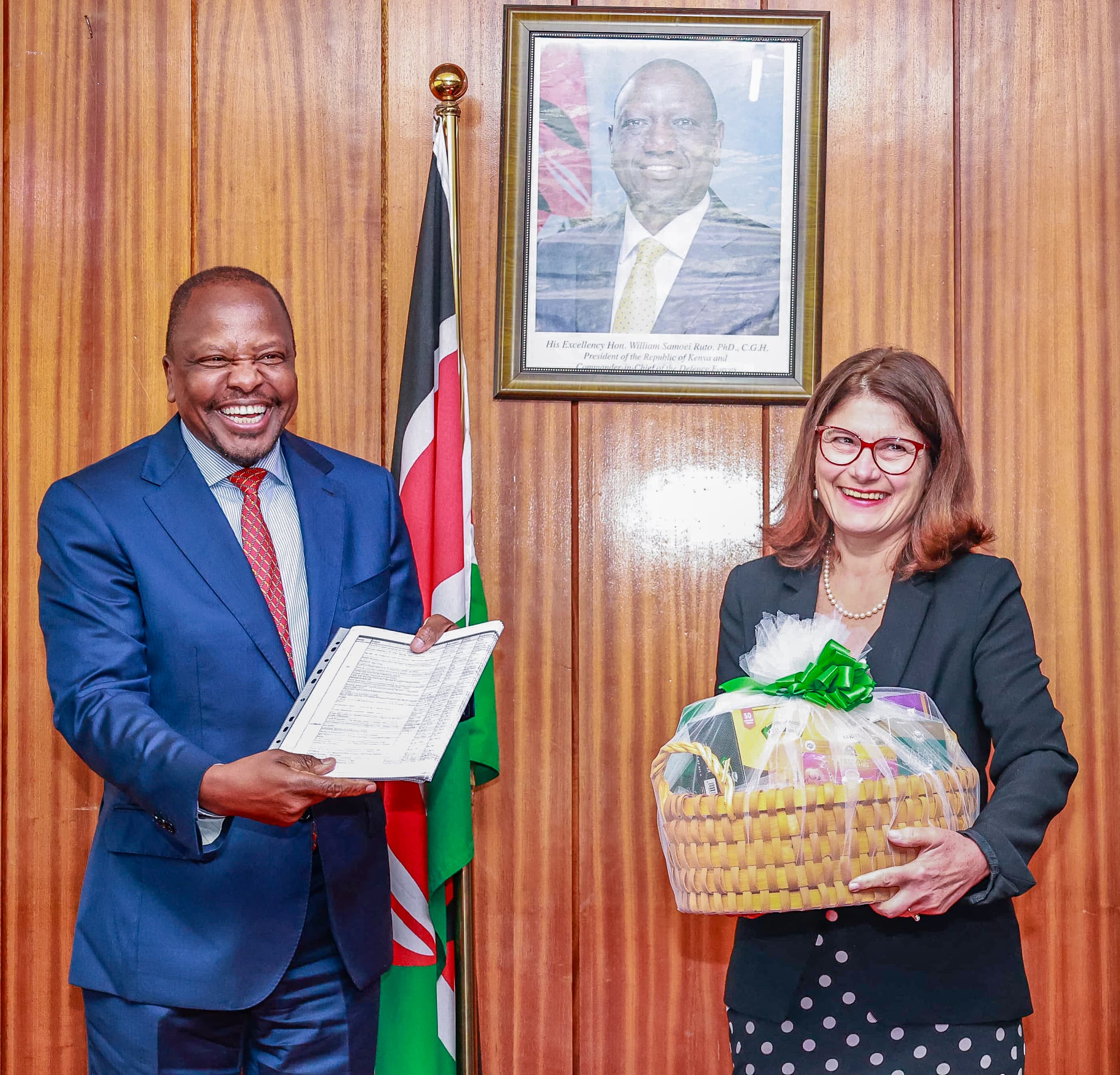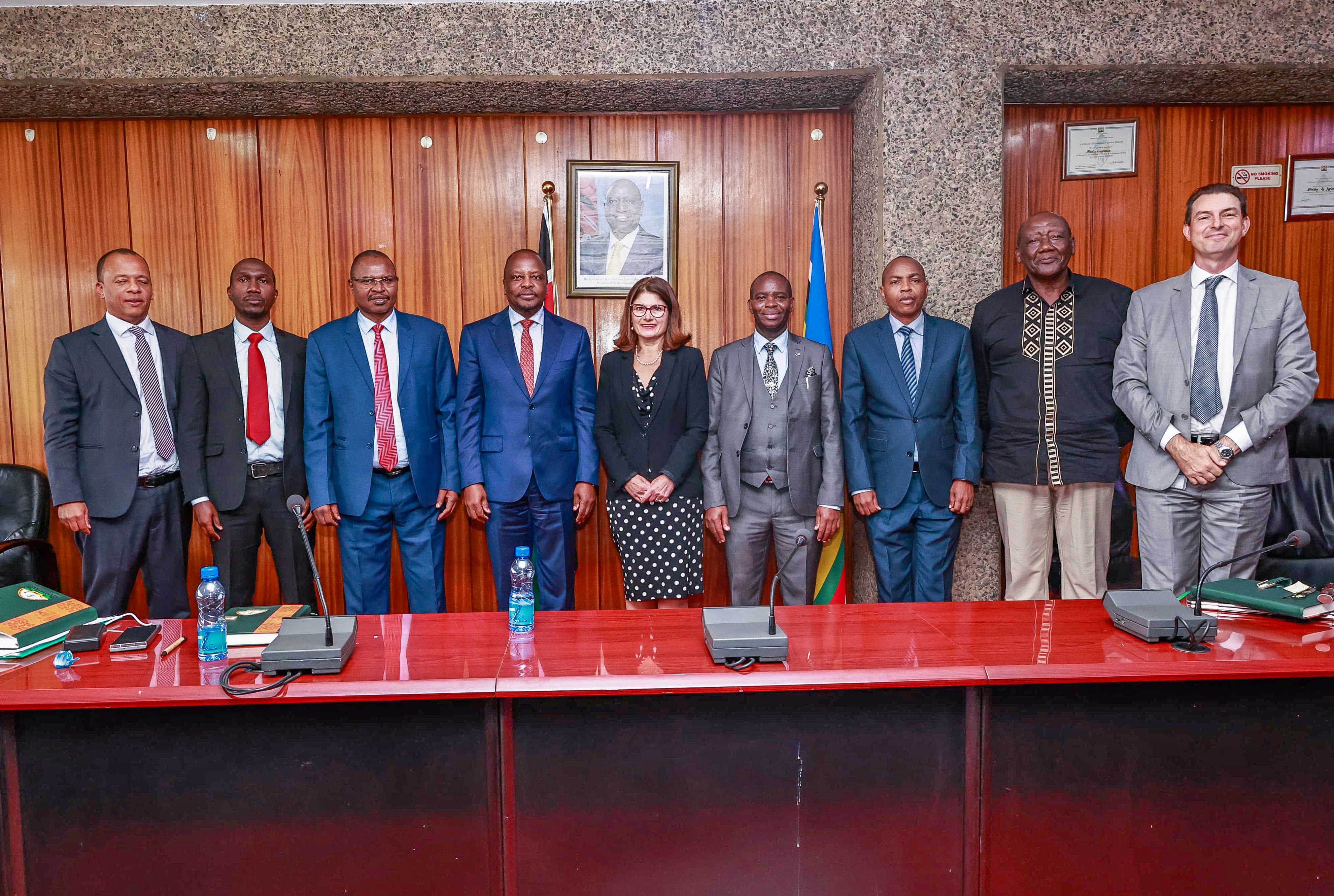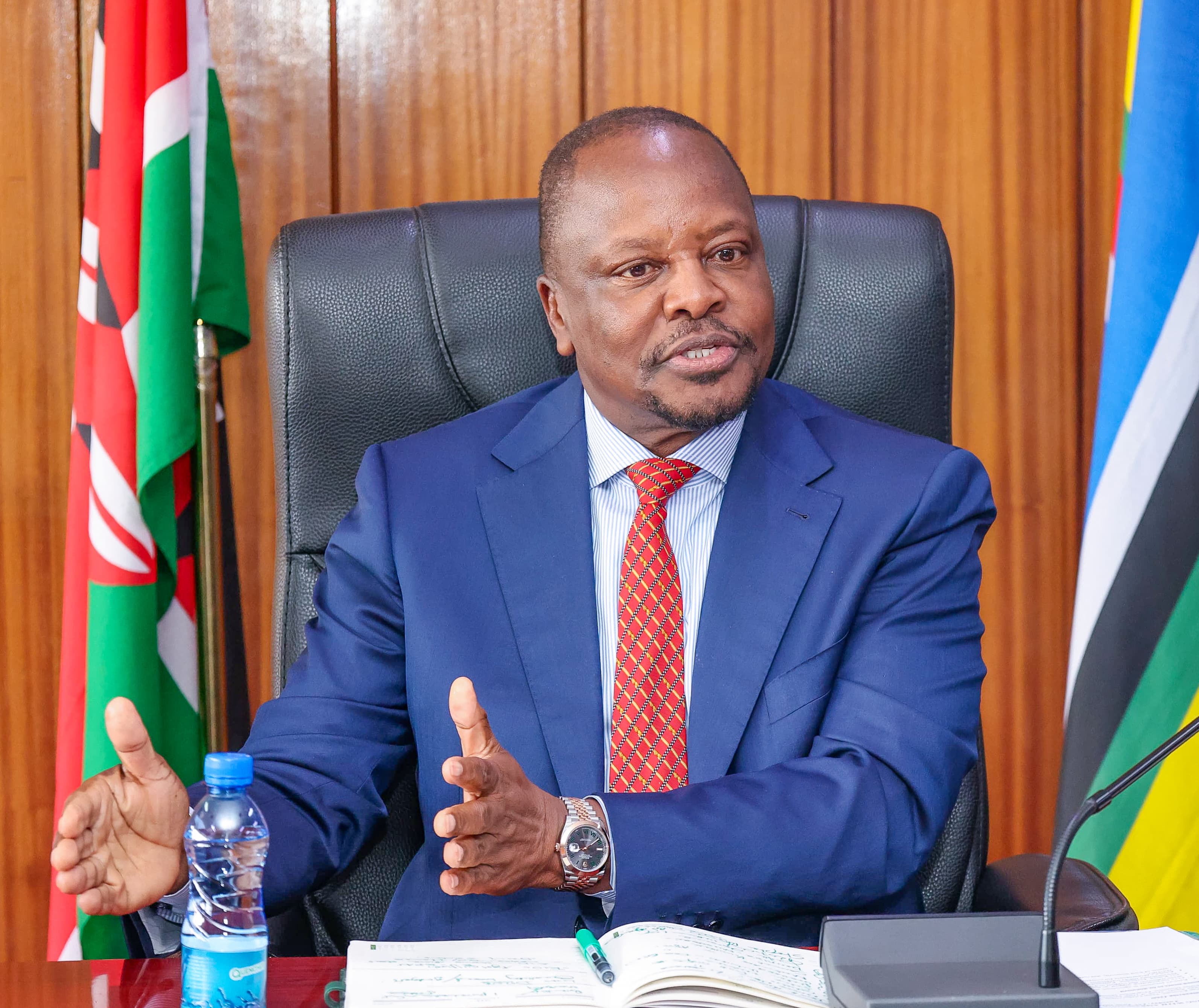

Kenya has been classified as a low-risk country under the European Union’s new deforestation regulations, offering a significant reprieve for local exporters concerned about emerging compliance costs.
The reassurance came during a high-level meeting between Agriculture and
Livestock Development Cabinet Secretary Sen. Mutahi Kagwe and EU Ambassador to
Kenya, Henriette Geiger, held at Kilimo House.
The meeting, which brought together top officials from the Kenya Plant
Health Inspectorate Service (KEPHIS) and the Agriculture and Food Authority’s
Coffee Directorate, centered on strengthening agricultural trade ties and
addressing challenges posed by evolving EU regulations.
CS Kagwe welcomed the EU’s recognition of Kenya’s environmental efforts,
noting that the country’s tree cover is steadily increasing, bolstered by the
expansion of crops such as avocado and coffee, which contribute to
reforestation.
He, however, warned against what
he termed "shifting goalposts" that could jeopardise Kenya’s competitiveness
in the European market.
“If you must shift the goalpost, provide support. These regulations
increase the cost of production for Kenyan farmers,” Kagwe said, referencing
the recent introduction of the deforestation law shortly after Kenya had
successfully implemented the False Codling Moth (FCM) Systems Approach Protocol
for rose flowers exports.

Ambassador Geiger moved to allay fears, assuring the Cabinet Secretary
that Kenya is considered low risk and will not face a stringent assessment
under the new EU rules.
She further indicated that the EU will continue to consult its partner
nations to evaluate the real-world impact of such regulations.
On the issue of FCM, the meeting heard that Kenya’s efforts to control
the pest are yielding strong results.
KEPHIS reported a drastic reduction in flower interceptions at EU
borders, with none recorded last month and only one this month.
This success follows the implementation of the Systems Approach Protocol,
which has strengthened Kenya’s phytosanitary compliance and protected a vital
export sector.
KEPHIS has urged the EU to consider reducing this to between 5% and 10%, and called for the deployment of more inspectors to facilitate smoother export processes.

Kenya exports more than 60 million stems of cut roses daily to the EU and
UK, making efficiency in the value chain critical.
Discussions also touched on pesticide regulations, with KEPHIS requesting
what alternatives Kenyan farmers have when EU bans certain chemical products.
In response, CS Kagwe said the government is actively promoting the
pyrethrum industry as a sustainable and organic alternative, aligned with both
local priorities and global environmental standards.
Beyond trade protocols and regulation, the CS outlined Kenya’s broader
agricultural agenda, which focuses on food sustainability and independence,
import substitution for key commodities like rice, wheat, edible oils, and
animal feeds, and ensuring that donor funding is put to effective use.
The Coffee Directorate, on its part, shared ongoing efforts to geo-map
coffee farms across the country, a move aimed at enhancing traceability and
aligning Kenyan coffee with international compliance standards.
The meeting underscored Kenya’s commitment to meeting international
benchmarks while advocating for fair and stable trade practices that do not
unduly burden its farmers.

















